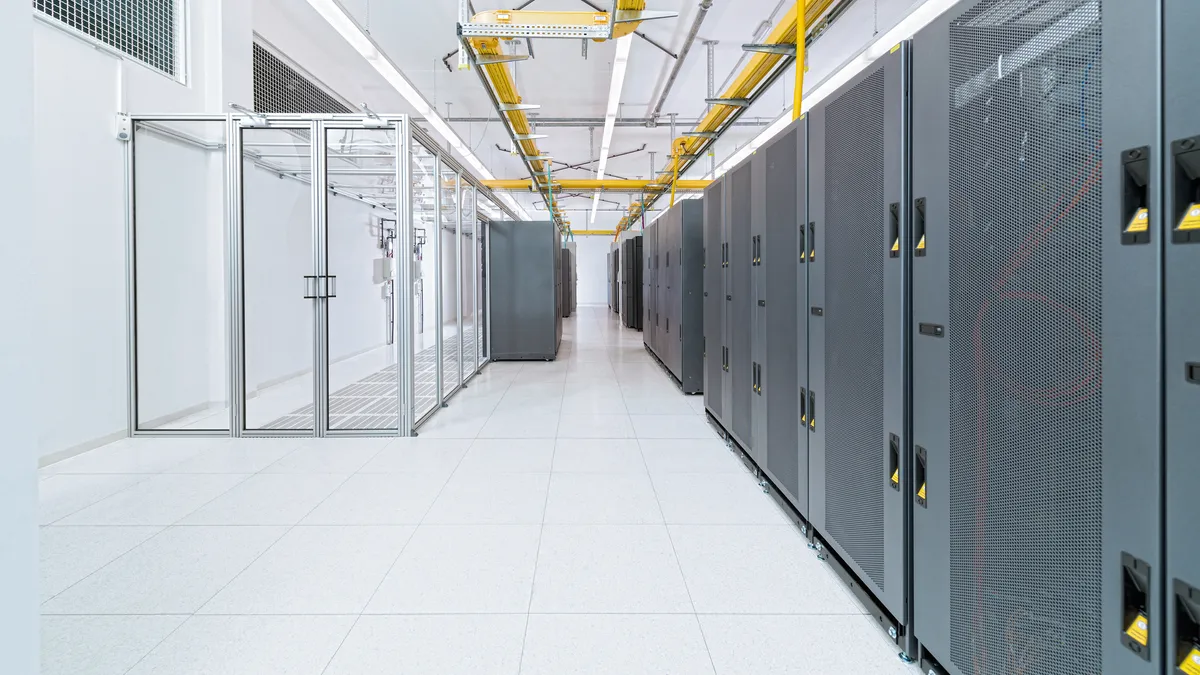Dive Brief:
- Amazon made strides into hardware during AWS re:Invent with on-premise racks for hybrid cloud customers, custom ARM-based data center processors and machine learning chips.
- AWS Outposts offers on-premise AWS compute and storage capabilities such as EC2 and EBS through fully-managed, configurable racks of AWS-designed infrastructure — which the cloud provider will install, maintain and replace, if necessary, according to the announcement. Customers can use VMware Cloud on AWS Outposts to run the infrastructure, continuing an existing partnership or extending the controls and APIs used on AWS cloud to the on-premise environment.
- On Monday, AWS launched Graviton processors for data centers to help customers manage costs with scale-out workloads. The processors use custom silicon and ARM cores and are meant for workloads spread across smaller instances, such as containerized microservices and development environments. And on Wednesday the company announced custom designed high-performance machine learning chips for larger workloads in addition to 13 new ML services and capabilities.
Dive Insight:
AWS Outposts is a continuation of Amazon's Virtual Private Cloud that will help boost the hybrid cloud experience for customers, allowing developers to write and run applications across infrastructures more easily. The service will publicly launch in the second half of 2019.
AWS CEO Andy Jassy told Forbes in an interview that customers want the same APIs, tools, hardware and functionality between their cloud and on-premise environments, the latter of which many aren't ready to retire yet.
AWS is attempting to disrupt the current model with a smoother experience for customers, joining its biggest cloud competitors.
In September, reports circulated that Google was challenging Microsoft's on-prem services and developing custom-designed computers for businesses to run in their data centers. Microsoft’s Azure Stack allows customers to extend some cloud capabilities into on-prem data centers.
Looking to compete seriously in the hybrid market, No. 4 cloud provider IBM also made a hybrid cloud power play last month with the announcement of a $34 billion acquisition Red Hat.
While No. 2 Microsoft and No. 3 Google are growing well above the market growth rate, Amazon still commands a much greater market share — 34% by Synergy Research Group's estimates.
Estimates have the Amazon segment expected to reach $71 billion in revenue by 2022, according to Jefferies analyst Brent Thill, Bloomberg reported. Customers "jumping in big" have increased the company's deal sizes by 3.5 times since 2017.
The announcement of ARM-based AWS server chips will help Amazon reduce its reliance on Intel's data center processors, challenging the hardware giant through competitive costs.













